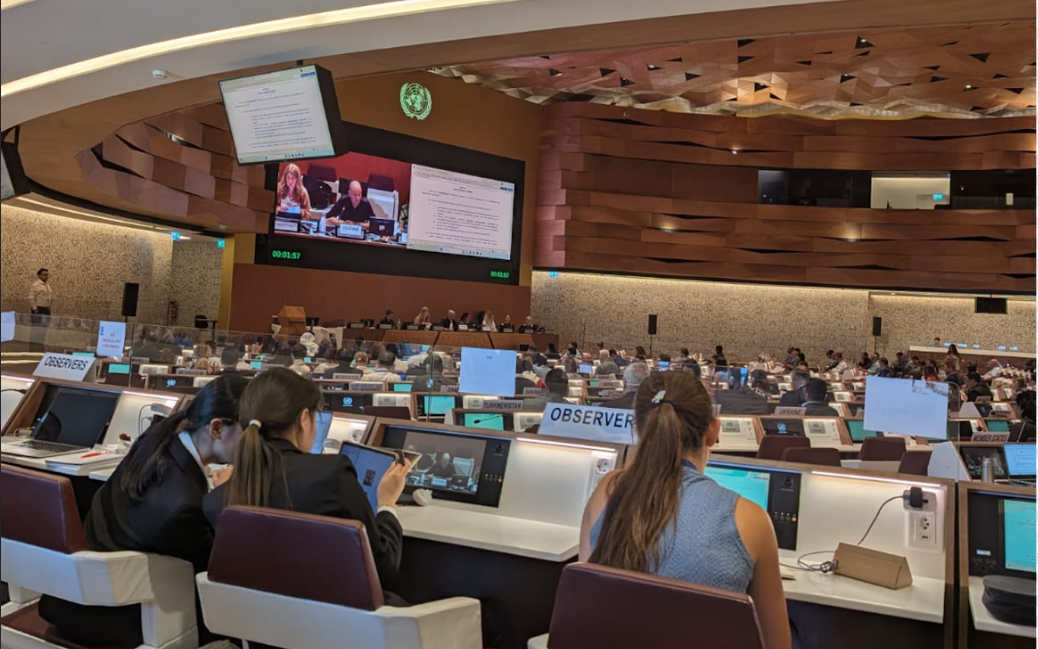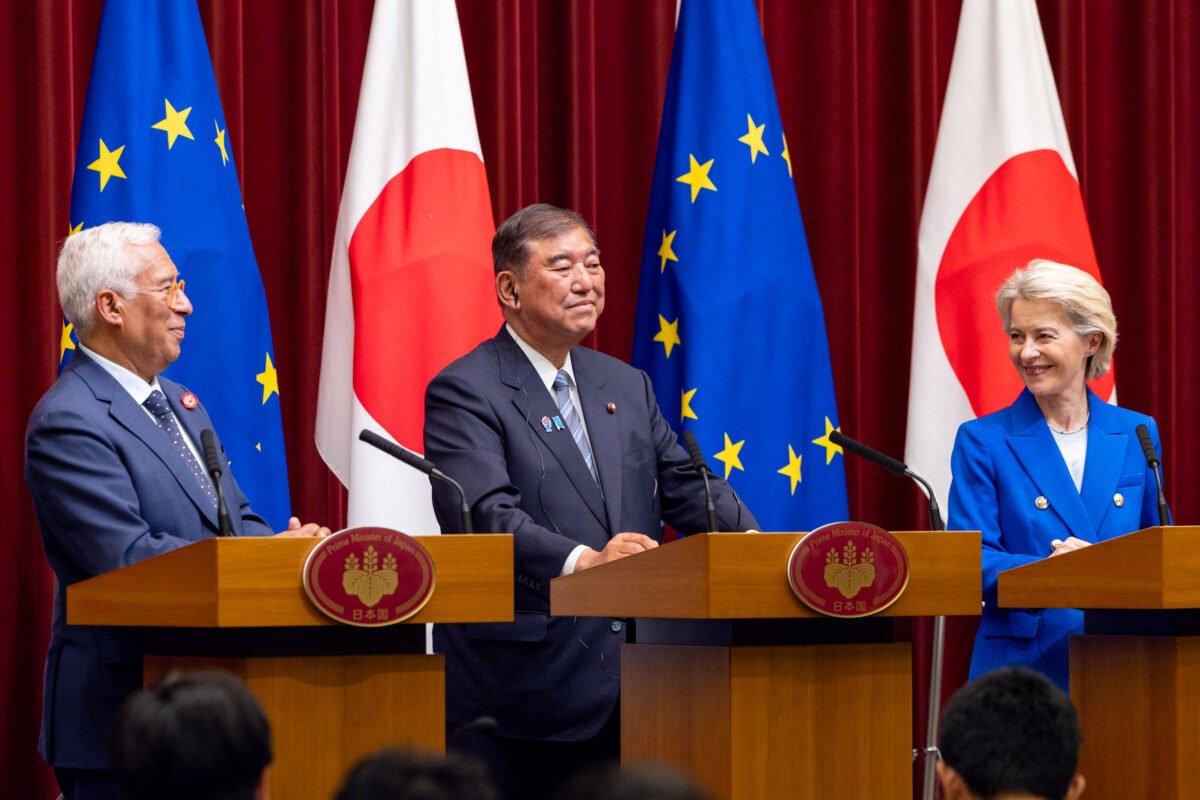Plastic pollution is choking oceans, infiltrating food, and threatening human health—but global efforts to tackle it are stuck. The latest round of UN negotiations in Geneva collapsed in August after ten fraught days, leaving 185 countries deadlocked over whether a treaty should curb plastic production or focus only on waste management. With key provisions stripped from a proposed compromise and corporate lobbyists outnumbering scientists and Indigenous representatives, the talks exposed the fragility of multilateralism—and the urgent need for bold, creative solutions.
Geneva ends in deadlock, not deliverance
The latest round of negotiations for a global treaty to tackle plastic pollution ended in disappointment this August in Geneva. After ten tense days, the sixth session of intergovernmental negotiations, INC 5.2, adjourned without consensus. Despite intensive consultations stretching into the early hours of 15 August, the Chair, Ecuadorian diplomat Luis Vayas Valdivieso, concluded that a compromise text acceptable to all parties was unattainable and suspended the session sine die.
This collapse marks yet another sobering moment for multilateralism. The negotiations, which began in 2022, were intended to bridge divergent positions among 185 participating countries. Yet debates again crystallised around two pivotal questions: the treaty’s scope and whether it should address plastic production.
On one hand, the High Ambition Coalition (85 countries led by Rwanda and Norway, and including many African states and the European Union) and other ambitious countries, totalling over 100, want a treaty with global rules that regulate the entire life cycle of plastic.
On the other hand, a smaller group, the so-called Like-Minded Group (petrochemical countries led by Saudi Arabia, along with Iran, Iraq, India, Malaysia, Russia, Morocco, Uganda, Cuba, and Kazakhstan), wants a voluntary Global Plastics Treaty, with provisions addressing only waste management. The United States, which observers predict will never ratify the agreement, has positioned itself alongside them, and as expected, has opposed introducing production limits. Their highly effective obstruction strategy diluted the treaty’s ambition and blocked measures perceived as threatening to their domestic industries.
There is a third group of countries whose position has been more difficult to understand. These include Brazil, which nevertheless expressed support for the inclusion of human health in the treaty, and China, which stated in the final plenary session that "plastic pollution is much more complicated than we thought, as it affects the entire life cycle of plastic."
Fossil and chemical corporate influence on the talks
Adding fuel to the fire, a record 234 fossil fuel and chemical industry lobbyists were registered for INC 5.2, surpassing the 221 at the previous session. Analysis by the Centre for International Environmental Law, supported by numerous environmental and Indigenous organisations, found that these lobbyists outnumbered the combined EU delegations and significantly exceeded the number of scientists and Indigenous representatives present. Nineteen lobbyists even secured spots within national delegations, including those of Egypt, Kazakhstan, China, and Iran. The strong presence of fossil fuel actors at this critical session raises serious questions about corporate influence in shaping the treaty’s final text.
With the process deadlocked, Chair Vayas Valdivieso proposed a compromise two days before the session’s scheduled end. For the coalition of “high-ambition” countries, it was a severe disappointment. Key provisions were stripped away: measures addressing plastic production were removed, and global mechanisms to ban certain hazardous substances or problematic products were abandoned. Delegates and observers alike interpreted this as a clear signal that the high-ambition coalition would not settle for a treaty at any price. Over the following days, these positions were reiterated consistently. Another compromise draft was tabled on the night of 14–15 August. While considered “more balanced” by the high-ambition coalition, the proposal arrived too late to allow meaningful agreement. The session officially closed without consensus.
China breaks its silence with a warning shot
The talks’ collapse highlights the deep structural challenge confronting global environmental governance. Compromise in multilateral negotiations has, thus far, tended to move in one direction—toward the lowest common denominator. High-ambition nations face a stark choice: continue within the United Nations framework or explore parallel strategies to achieve meaningful action.
Yet, amid this apparent failure, there were noteworthy developments that might offer a glimmer of hope. One pivotal moment came early on 15 August, when China —relatively quiet in previous rounds—issued a statement that went largely unreported by mainstream media. This is significant because China represents 17.6 per cent of the world’s population and is by far the largest producer of plastics globally. Its engagement could therefore tilt the balance in future negotiations. China emphasised that plastic pollution is far more complex than initially imagined, affecting the entire production, consumption, recycling, and waste management chain. The statement also highlighted the interconnectedness of environmental crises: plastic pollution, climate change, and biodiversity loss are intimately linked, and addressing one without the others is destined to fail.
A fork in the road for high-ambition nations
China framed the struggle against plastic pollution as a marathon, acknowledging the setback in Geneva while calling it a new starting point to achieve consensus. These remarks are more than diplomatic rhetoric; they signal recognition that addressing plastic pollution requires action across the full lifecycle of plastics, integrating solutions across sectors. For multilateralism to succeed, major producers like China must not only participate but translate their engagement into enforceable commitments.
The negotiation collapse also raises strategic questions for high-ambition nations. Should they pursue a seventh round of INC negotiations, even though the main sticking points—capping production and managing problematic chemicals—remain unresolved? Critics argue that compromise so far has been lopsided, conceding too much to obstructionist countries. Some observers suggest revisiting the 2022 treaty mandate at the next United Nations Environment Assembly in December or pursuing a plurilateral agreement outside the UN framework. History demonstrates that universality is not always essential. Major environmental treaties, such as the Basel and Stockholm Conventions or the UN Convention on the Law of the Sea, have thrived without the participation of every major power, including the United States. Treaty texts are often designed with non-universal participation in mind, incorporating safeguards to prevent loopholes and ensure meaningful implementation.
In practical terms, if negotiations resume, there are mechanisms to encourage broader participation. Market leverage could incentivise compliance: transparency requirements, phased bans on harmful chemicals, and financial flows restricted to treaty parties could pressure non-signatories to join. A border adjustment fee, provided it is non-discriminatory, could further nudge hesitant states. Economic incentives, coupled with environmental standards, may thus serve as a pragmatic path forward.
Beyond strategy, the talks underscore a sobering reality for multilateralism itself. After 33 months and more than 1,250 hours of negotiation, progress is painfully incremental, and consensus remains elusive. Yet plastic pollution is not waiting. Rivers, oceans, and ecosystems are suffused with plastic waste; microplastics infiltrate our food and water; human health is increasingly threatened. Every delay in producing a binding global framework allows these crises to worsen.
The INC 5.2 talks also reveal something fundamental about global environmental politics. Countries with the largest stakes in production and consumption wield disproportionate power, and consensus-based decision-making is easily stalled by a few actors. Yet, paradoxically, these same countries hold the key to transformative change if they choose to act. China’s recent statement illustrates that even those historically perceived as obstructive can adopt a more constructive posture. The challenge is converting rhetorical commitment into enforceable action.
Meanwhile, smaller and mid-sized nations continue to push for ambition. Many have voiced frustration with the procedural opacity and strategic delays orchestrated by obstructionist blocs. For them, a binding treaty is not a political convenience but an existential necessity: islands, coastal regions, and vulnerable communities already experience the devastating consequences of plastic pollution. Their stakes could drive alternative strategies, including regional agreements or coalition-based initiatives that bypass deadlocks at the UN level.
Ultimately, INC 5.2 should not be viewed purely as a failure. It is a cautionary tale, revealing the structural obstacles to global cooperation and the difficulties of reconciling diverse national interests with urgent planetary needs. But it is also an opportunity—a moment to reflect, recalibrate, and re-energise efforts toward a treaty that is both inclusive and effective.
Multilateralism is at a crossroads. The collapse in Geneva demonstrates the fragility of consensus, but it also illuminates the pathways for innovation: combining diplomatic engagement with economic instruments, pursuing flexible frameworks that anticipate partial participation, and leveraging leadership from high-impact countries like China. A truly effective plastics treaty will require patience, persistence, and creativity—qualities that, after decades of environmental negotiation, the global community cannot afford to lack.
Plastic pollution remains a marathon, not a sprint. Geneva’s setback is temporary, but the clock is ticking. If multilateralism can adapt, the next round of negotiations could yield a landmark treaty. If not, the world may need ambitious coalitions outside traditional forums to turn rhetoric into enforceable action. The challenge is immense, but so too is the prize: a sustainable future where plastics no longer choke oceans, poison food, or threaten generations to come.








